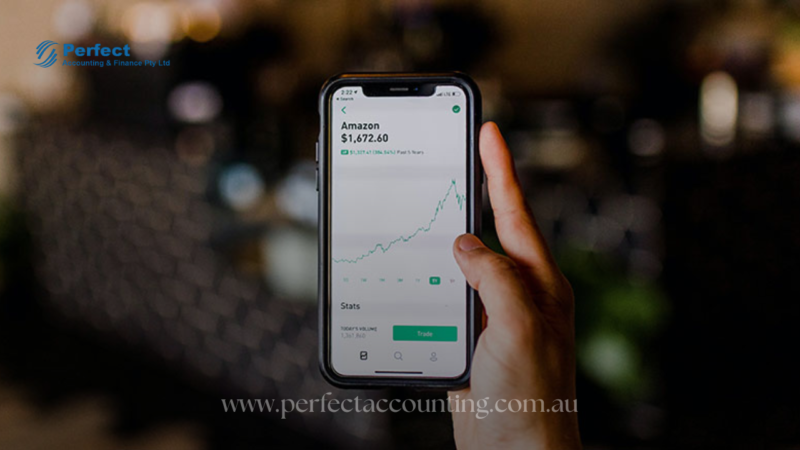How Smart Contract Wallets Are Changing the Game for Web3 Users
This article explores how smart contract wallets are revolutionizing the Web3 wallet experience by offering advanced features like social recovery, gasless transactions, and programmable automation. It highlights why these wallets are becoming the best decentralized crypto wallet options for both new users and experienced DeFi participants. The piece also reviews leading smart contract wallets and their impact on usability, security, and mass adoption in the Web3 ecosystem.

The evolution of blockchain technology has introduced significant innovations across security, usability, and accessibility. Among the most impactful of these is the smart contract walleta next-generation solution redefining how users interact with the decentralized web. As Web3 continues to expand with DeFi protocols, NFTs, DAOs, and dApps, smart contract wallets are positioning themselves as essential tools for onboarding the next wave of users. This article explores how smart contract wallets are transforming the Web3 wallet experience and why theyre emerging as contenders for the best decentralized crypto wallet in 2025 and beyond.
What Is a Smart Contract Wallet?
A smart contract wallet is a blockchain-based wallet governed by programmable smart contracts rather than traditional private key pairs alone. While most crypto wallets rely on a single seed phrase or key for access, smart contract wallets use logic coded into a contract to manage permissions, recovery methods, spending rules, and interactions with other dApps or contracts.
This programmable design offers unprecedented flexibility and security, unlocking capabilities that are difficultor impossiblefor traditional wallets to replicate.
Core Features of Smart Contract Wallets
Smart contract wallets offer a wide range of features that go far beyond simple storage and transfer of crypto assets:
-
Multisig and Social Recovery
Unlike traditional wallets where losing a private key means losing funds, smart contract wallets allow for multiple recovery methods. These can include trusted accounts (social recovery), guardians, or multisig setups. -
Gas Abstraction
Some smart contract wallets allow users to pay gas in tokens other than ETH, or even enable gasless transactions through relayers or sponsorsimproving the user experience significantly. -
Transaction Automation
Users can set spending limits, create scheduled payments, or automatically interact with DeFi protocols without manual intervention. -
Built-in Security Policies
Smart contract wallets can enforce rules like time-locks, whitelisted addresses, daily spending limits, and even automatic fraud detection scripts. -
Custom dApp Interactions
Wallets can be tailored to interact directly with complex dApps, automatically approve contract calls, or simplify multi-step processes into one-click actions.
Why Smart Contract Wallets Matter in Web3
The transition from Web2 to Web3 is often hindered by complexity. The average user finds seed phrases, gas fees, and transaction confirmations confusing. Smart contract wallets solve many of these onboarding challenges by:
-
Reducing the risk of key loss through custom recovery mechanisms
-
Enabling passwordless logins or mobile app integrations
-
Supporting mobile-first users with low friction interactions
-
Creating wallet-as-a-service models for dApps, DAOs, and games
As a result, smart contract wallets are becoming the go-to Web3 wallet for projects aiming to scale to millions of users.
Top Smart Contract Wallets in 2025
Several smart contract wallets have emerged as leaders in the decentralized space, each offering unique advantages:
1. Argent
Argent is a non-custodial smart contract wallet on Ethereum and zkSync that focuses on ease of use, security, and gas efficiency. It supports social recovery, DeFi integrations, and zero-gas transactions on L2 networks.
-
Social recovery via trusted contacts
-
No seed phrase needed
-
Direct integration with DeFi apps like Aave and Yearn
-
zkSync support for low gas fees
Why it stands out: A pioneer in smart contract wallets, Argent redefined user experience for Ethereum-based DeFi.
2. Safe (formerly Gnosis Safe)
Originally built for multisig treasury management, Safe has evolved into a modular smart contract wallet used by DAOs, institutions, and power users.
-
Multisig access for enhanced governance
-
Granular permission controls
-
Plugin system for custom features
-
Widely used in DAO ecosystems
Why it stands out: One of the best decentralized crypto wallets for collaborative asset management and on-chain governance.
3. Ambire Wallet
Ambire is a smart contract wallet offering a complete dashboard for DeFi users, along with email-based login and gas fee optimization.
-
On-chain account abstraction
-
Supports email login with non-custodial structure
-
Built-in DeFi portfolio tracker
-
Optimized for desktop and mobile
Why it stands out: Bridges the gap between Web2 UX and Web3 functionality, great for mass adoption.
4. Plus Wallet (Future-Ready Hybrid Model)
Plus Wallet, a multi-chain, self-custodial Web3 wallet, is exploring smart contract wallet architecture to support gasless transactions, automated swaps, and advanced user protection. Built for ease of use and rewards (swap-to-earn, refer-to-earn), it combines user-centric design with decentralized infrastructure.
-
Multichain compatibility (ETH, BNB, Polygon, etc.)
-
Future-ready smart contract wallet integration
-
Secure private key control
-
Lightweight mobile UX with powerful features
Why it stands out: A rising contender aiming to merge the simplicity of mobile wallets with the power of smart contract functionality.
Smart Contract Wallets vs Traditional Wallets
| Feature | Traditional Wallet | Smart Contract Wallet |
|---|---|---|
| Private Key Control | User only | Smart contract-managed |
| Recovery | Seed phrase | Social recovery, guardians |
| Multisig | Limited or external tools | Built-in |
| Gas Options | Native token only | Gas abstraction or sponsor |
| Automation | Manual only | Programmable logic |
| dApp Integration | Requires WalletConnect or manual approval | One-click or custom flows |
Clearly, smart contract wallets offer a robust set of tools that go beyond traditional setups, making them ideal for both new and experienced Web3 users.
Challenges and Limitations
Despite their advantages, smart contract wallets still face a few challenges:
-
Higher complexity for developers and integrations
-
Smart contract risks (code bugs or exploits)
-
Dependence on specific chains or Layer 2s
-
Costs of contract deployment on high-fee networks
However, these issues are being rapidly addressed with ongoing development in account abstraction (ERC-4337), audit tools, and standardized interfaces.
Final Thoughts
Smart contract wallets are more than just a technical upgradethey represent a fundamental shift in how we approach security, usability, and autonomy in Web3. By offering programmable flexibility, intuitive UX, and advanced recovery options, theyre setting new standards for what a Web3 wallet can be.
As adoption accelerates, and account abstraction becomes more widespread, smart contract wallets are well on their way to becoming the best decentralized crypto wallet option for both everyday users and advanced DeFi participants. Whether you're a DAO treasurer, NFT collector, or DeFi power user, smart contract wallets are the key to a smarter, safer Web3 future.








































